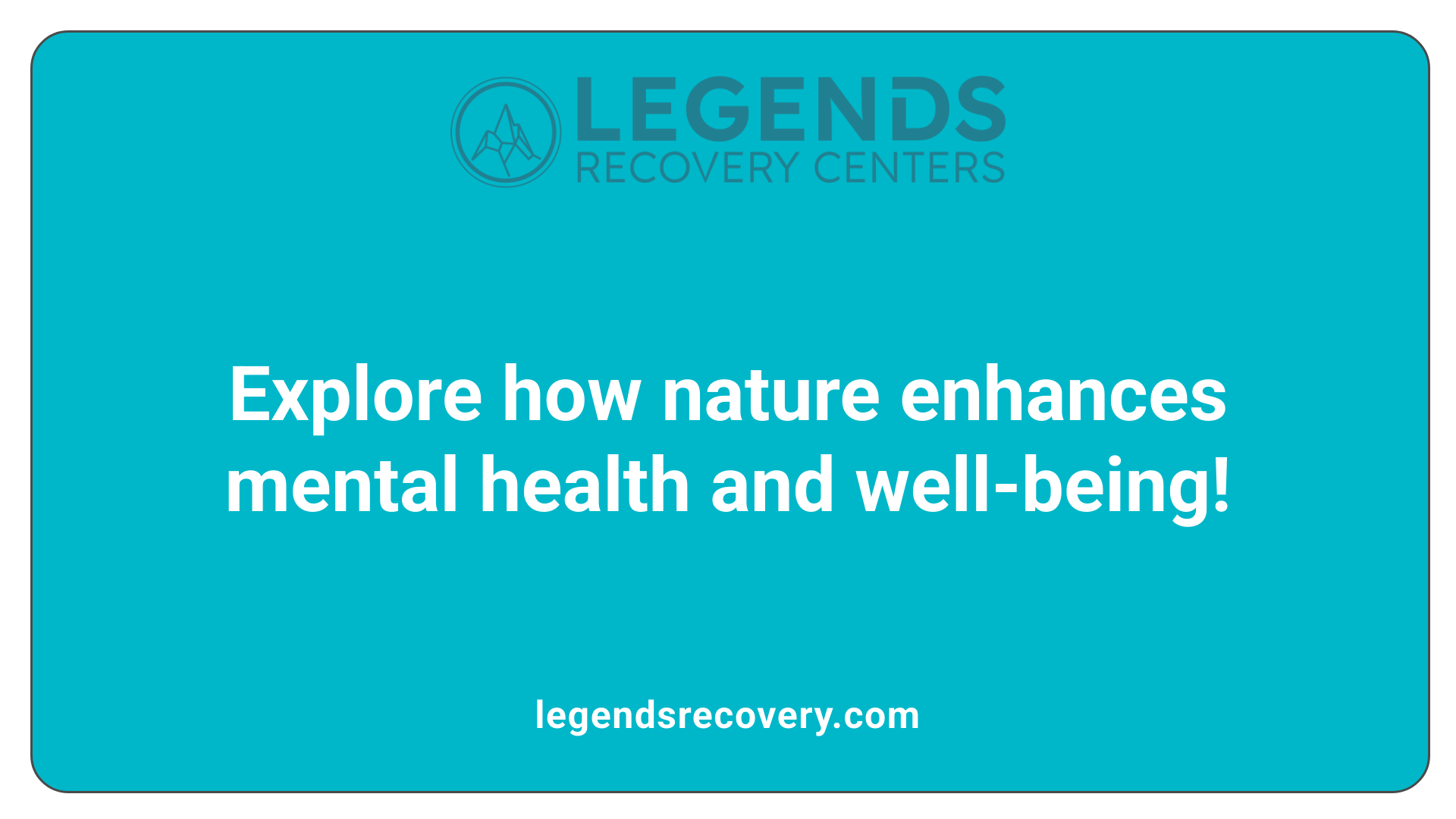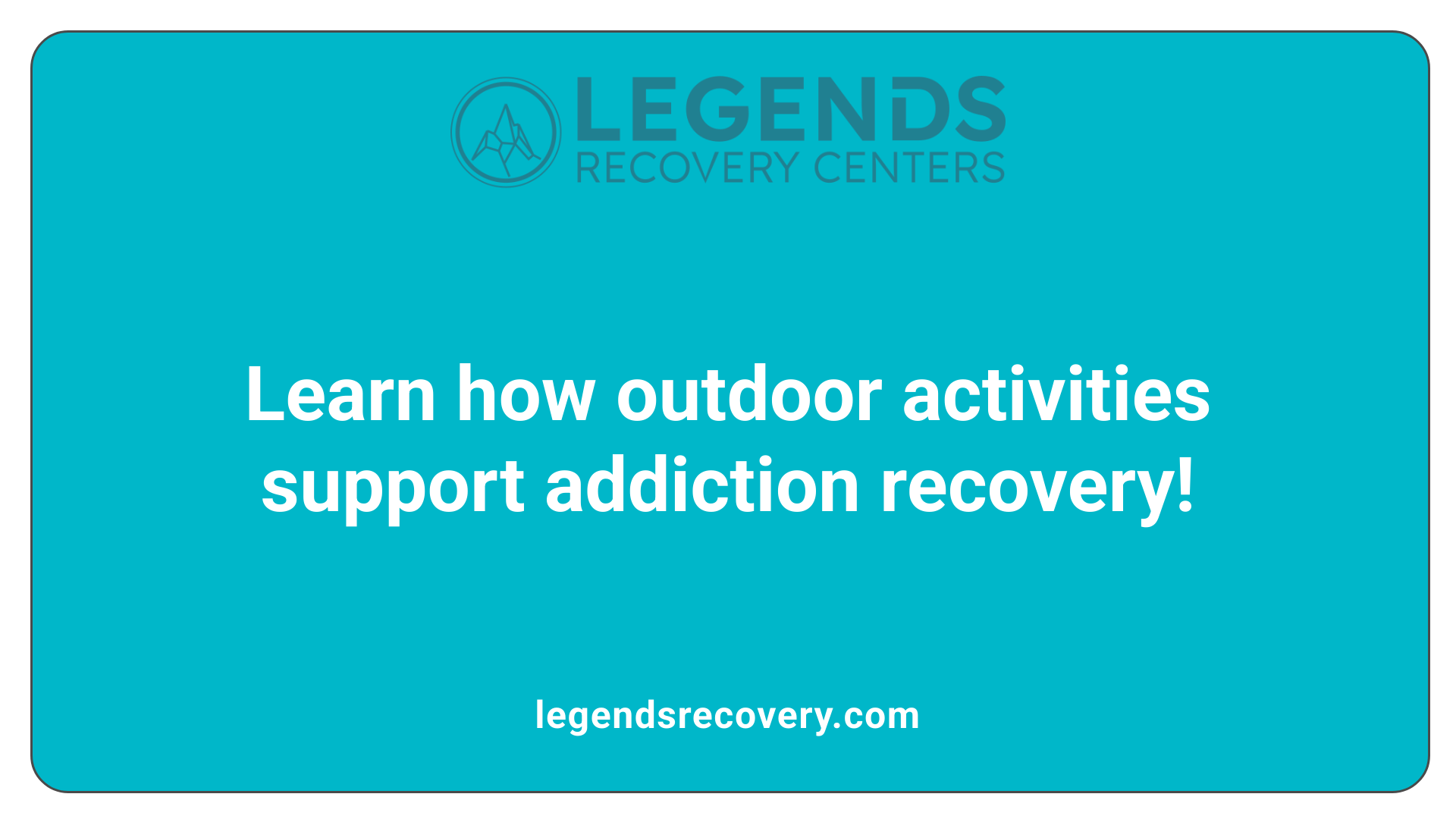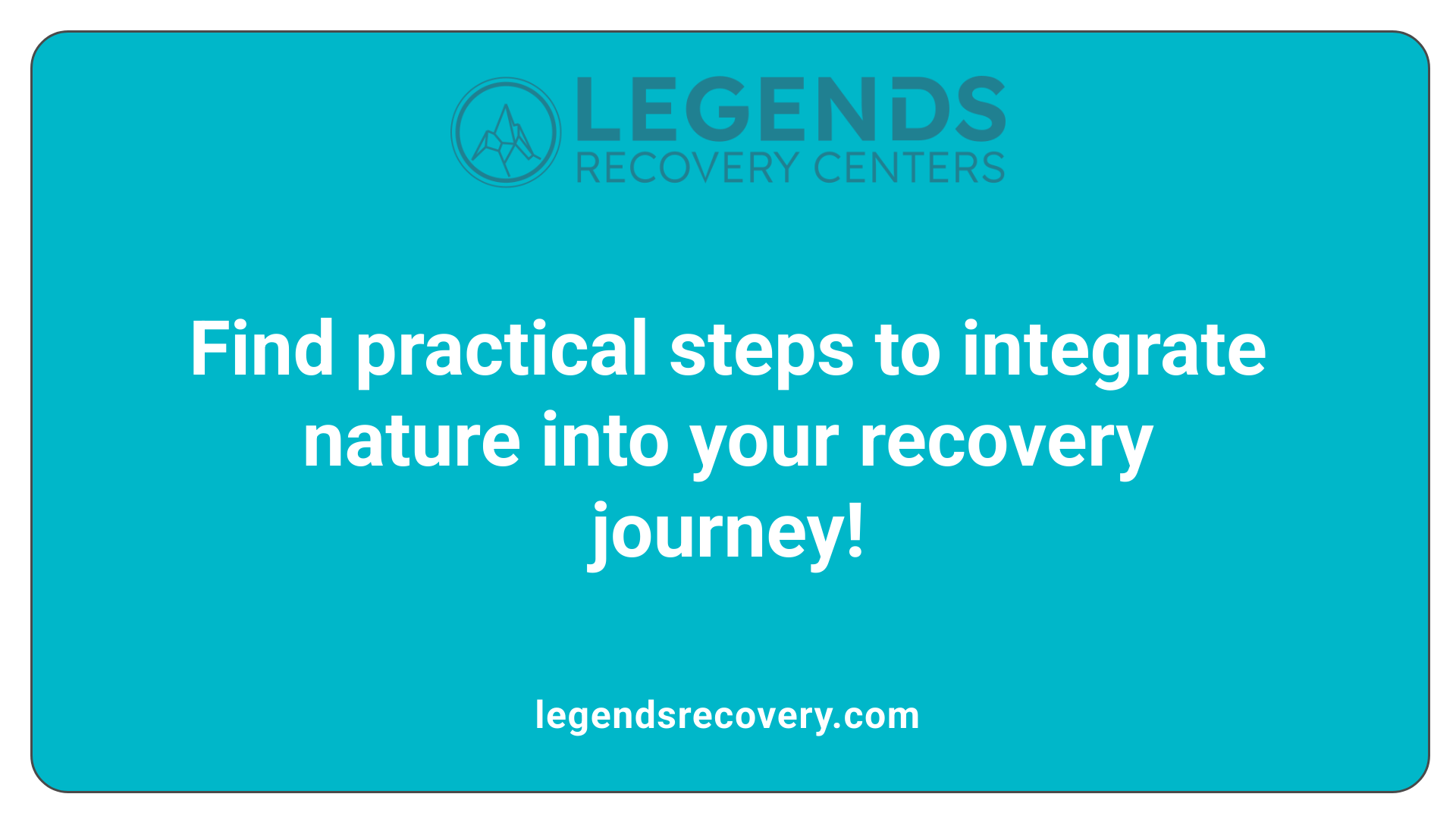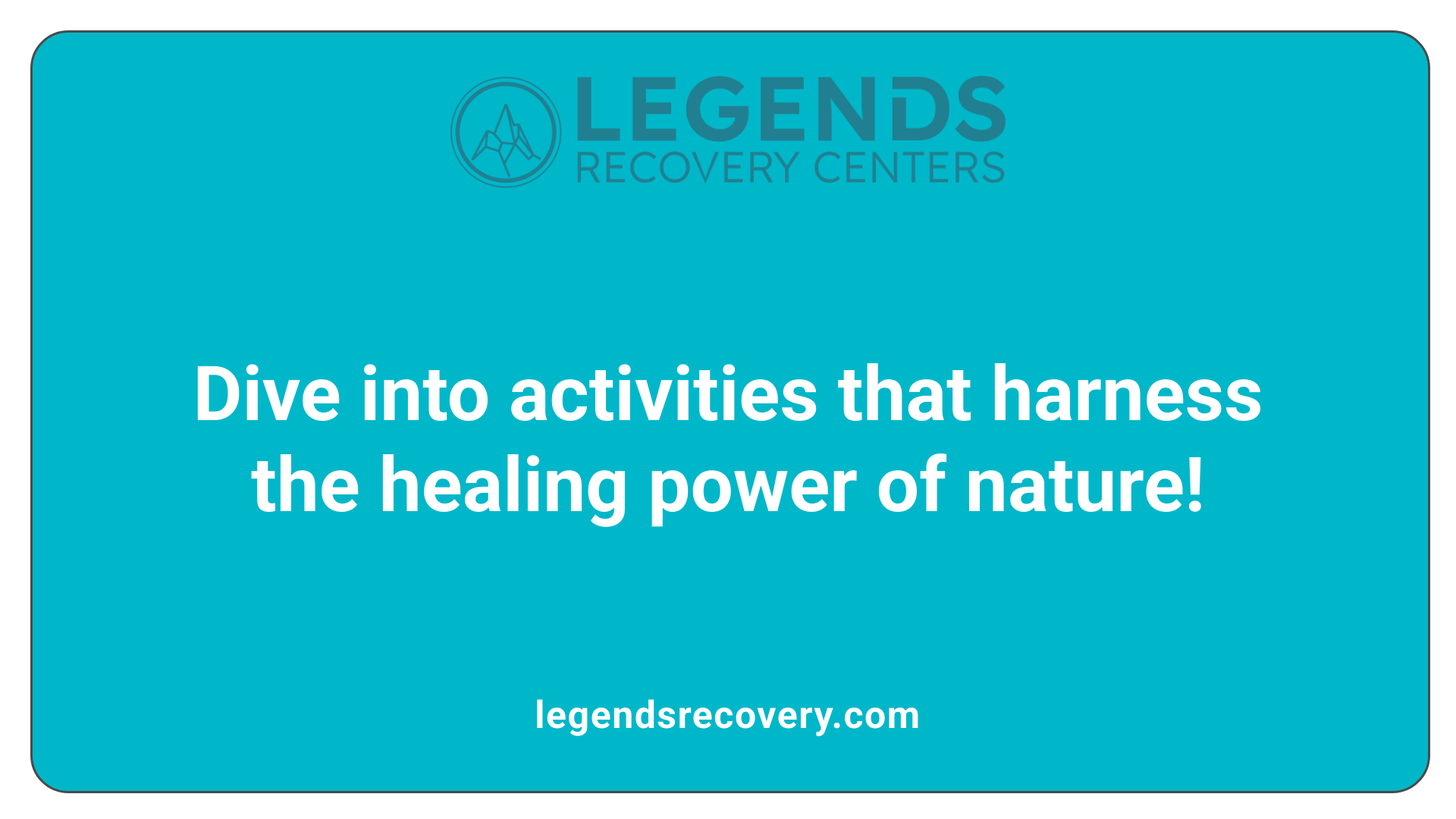Healing Through Nature: The Power of Outdoor Activities in Recovery

Exploring the outdoors is not just a leisure pursuit; it is a powerful ally in the journey of addiction recovery. Immersing oneself in nature offers numerous benefits that aid in physical, mental, and emotional healing, making it a crucial component for those seeking to overcome substance use disorders. This article delves into evidence-based insights on how connecting with nature and engaging in outdoor activities can facilitate recovery, enhance well-being, and promote long-term sobriety.

Engaging in outdoor activities offers a multitude of benefits that significantly enhance both physical and mental health. Here’s how these activities contribute to overall well-being:
Physical health improvements
Mental health benefits
Stress reduction and mood enhancement
Overall, participating in outdoor activities not only fosters better physical health through increased activity levels and calorie burning but also contributes to improved mental well-being and quality of life.

Engaging in outdoor activities fosters mindfulness, which encourages individuals to be present and aware of their thoughts and emotions. Such practices are essential for managing stress and anxiety, as they allow for deeper self-reflection and emotional regulation. Activities like mindful walking can clarify one's mental state and emotional responses, helping individuals maintain focus on their recovery journey.
Nature has a remarkable impact on mental well-being. Spending time outdoors significantly lowers cortisol levels and reduces anxiety. The serene landscapes and fresh air serve as calming influences, allowing individuals to step back from everyday pressures and find peace. This reconnection with nature may alleviate feelings of isolation, creating a supportive environment as individuals navigate the challenges of addiction recovery.
Ecotherapy, which integrates nature and mental health practices, harnesses the restorative power of the environment. By participating in activities such as gardening, hiking, or engaging in conservation work, individuals not only boost their mental health but also foster social connections that can be vital during recovery. Studies show that these experiences lead to improved mood and emotional balance, illustrating the profound effects of nature on psychological well-being.
| Topic | Benefits | Examples |
|---|---|---|
| Mindfulness Practices | Improved focus, emotional clarity | Mindful walking, meditation |
| Reduced Anxiety | Lower cortisol, calming effects | Gardening, nature volunteering |
| Ecotherapy | Enhanced mood, social connections | Hiking, conservation activities |

Outdoor activities can significantly aid in addiction recovery by providing a constructive outlet for stress and anxiety, which commonly arise during early recovery. Activities like hiking, cycling, or yoga offer not only physical exercise but also mental relaxation. These experiences help combat boredom, a notable challenge for individuals striving to maintain sobriety, while simultaneously teaching them how to socialize and find enjoyment without substances.
Regular engagement in outdoor activities improves physical health, boosts self-esteem, and enhances mental well-being, enabling individuals to set and achieve personal goals. Programs such as those at the Vinland Center focus on integrating fitness, nutrition, and therapeutic exercises, inspiring a holistic approach towards recovery that empowers individuals to lead fulfilling lives.
Outdoor activities promote relaxation and reduce the risk of depression, which are essential for maintaining sobriety. They also create environments where individuals can connect with others, fostering community support that is vital in the recovery journey.
Spending time in nature has been linked to numerous stress-relief benefits. Engaging in outdoor physical activities helps lower cortisol levels, reduce muscle tension, and alleviate anxiety. Moreover, the natural landscapes create calming atmospheres that can significantly reduce stress response.
Outdoor activities also play a crucial role in establishing social connections. Participation in group activities—like team sports or group hikes—encourages interaction with peers, creating a sense of belonging. These interactions help build strong support networks that can provide encouragement, accountability, and friendship, all indispensable for sustained recovery.
Boredom can be a dangerous trigger for relapse. Engaging in outdoor hobbies fills time with fulfilling and enjoyable experiences while replacing previous addictive behaviors. Recreational pursuits such as kayaking, gardening, or even mindful walking not only occupy time but also cultivate new interests, thus improving life satisfaction and promoting long-term sobriety.

Engaging in outdoor activities can greatly support recovery in various ways. Some beneficial activities include:
These activities encourage mindfulness and offer a chance to build social connections through shared experiences.
Starting small can make the integration of outdoor activities manageable:
These steps help ensure that the transition to outdoor engagement is both pleasant and sustainable.
Safety is paramount in outdoor activities. Always consider the following:
By fostering a positive relationship with nature, individuals can gain significant emotional and physical benefits that are crucial for sustaining recovery.

Activities that exemplify the advantages of engaging with nature include:
Spending a minimum of 120 minutes a week in these green spaces is associated with enduring mental and physical health benefits. Participants often experience lower blood pressure, enhanced sleep quality, and elevated vitamin D levels through sun exposure.
Engaging in outdoor activities not only supports physical health but also effectively combats mental fatigue. Being in nature can lead to significant decreases in stress levels and enhance emotional resilience. The peaceful environment of outdoor spaces fosters relaxation and creativity, vital for recovering from addiction.
Moreover, participating in group outdoor activities builds social connections, which are crucial for emotional support during recovery. Group exercises and adventures encourage relationships among peers and replace the feelings of isolation common in recovery journeys. These experiences offer a sense of belonging and shared purpose, enriching the overall recovery process.
Incorporating outdoor activities into addiction recovery programs is more than just a therapeutic trend; it is a multifaceted approach that offers tangible benefits. From enhancing mental health and providing stress relief to fostering social connections and building physical strength, engagement with nature can significantly contribute to a successful recovery journey. As research and personal testimonies continue to underscore the power of nature, embracing these practices can help individuals find peace and purpose, ultimately leading to lasting sobriety.